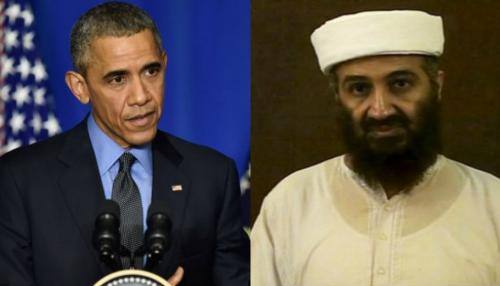- News>
- World
When Barack Obama called the then Pakistan president Asif Ali Zardari to tell him about the killing of Osama bin Laden

Zardari was thrust into a leading role in Pakistani politics after his wife and prominent politician Benazir Bhutto was assassinated by extremists on 27 December, 2007
Washington: When the then US President Barack Obama called his Pakistani counterpart Asif Ali Zardari to inform him about the killing of Osama bin Laden by the US forces in a raid in Abbottabad, the latter, according to a book, told him that this was a "good news".
Whatever the fallout, he (Zardari) told Obama, "it's very good news. It's been a long time. God be with you and the people of America," Ben Rhodes, who was Obama's close aide at the White House writes in his latest book, referring to the response of Zardari when the US president called him to inform him about the American raid in on May 2, 2011.
Zardari was thrust into a leading role in Pakistani politics after his wife and prominent politician Benazir Bhutto was assassinated by extremists on 27 December, 2007.
"Zardari was sure to face a backlash at home over America's violation of Pakistani sovereignty," writes Rhodes in his book 'The World as It Is: A Memoir of the Obama White House', which hit the book stores this week.
But he wasn't upset," says Rhodes, giving his impression of the conversation between the two presidents, which happened before Obama went to address the nation informing his fellow Americans about the killing of Osama bin Laden.
According to Rhodes, who was Obama's close aid during his eight years of presidency, said that even from his election campaign days, he had insisted that he would cross the border if the US had actionable intelligence against Osama bin Laden.
When his national security team were debating about crossing into the Pakistani territory to kill bin Laden, it was vice president Joe Biden who was reluctant to do so.
It was obvious to me that Obama was going to do this. He had a way of looking straight ahead when he was listening at the same time that his mind was elsewhere. I could tell that he had turned the intelligence over and over in his mind ("this is a fifty-fifty call"), that he understood the risks with Pakistan," writes Rhodes.
When he asked me what I thought, I simply said, 'You always said you were going to do this'. Because I'd lived through the debate on the campaign, I knew he had meant what he said about going into Pakistan," the former White House official said.
Obama asked him to prepare for four scenarios: (1) bin Laden is at the compound and it's a success; (2) bin Laden is at the compound and it's messy ? people killed, Pakistani security services, instability; (3) bin Laden's not there but we get in and out cleanly; (4) bin Laden's not there and it's a mess.
At the end of the meeting, Obama didn't tip his hand, he just said he'd make his decision overnight. As people filed out of the room, Biden pulled Denis and me into a smaller, adjacent room and closed the door. He looked genuinely pained. 'You fellas really think he should do this?' 'I do,' Denis said," Rhodes writes.
I agreed, and repeated my point about Obama's always having said he would go into Pakistan to get bin Laden. 'Well', Biden said, 'I'm just trying to give him a little space'. I believed that ? Biden sometimes took strident positions in meetings to widen the spectrum of views and options available to Obama. He also worked hard to understand Obama's mind," he writes.
You've always got his back," the then Chief of Staff Denis McDonough said to him, according to the book.
You better believe it," Biden replied. "But we're also going to need to say some prayers," he added.
